F5's Helfer On Partnering With AWS, Building Relationships With VMware And Cisco, And Making Cloud Economics Work For The Channel

Reaping The Rewards
F5 Networks Senior Vice President of Worldwide Partners and Cloud Sales David Helfer is pressing the accelerator on the company's cloud offensive with a new incentive structure that rewards sales teams for working with channel partners migrating customer workloads between private, hybrid and public cloud environments.
F5 recently held its international sales conference, and the message was clear: Salespeople must work with the channel to sell subscription-based F5 software, as well as renewal and migration services in the years that follow.
Salespeople "can retire comp and quota in working with partners selling into the public cloud," Helfer said in an interview with CRN. "We want our partners to feel no matter where the workload is moving, we're going to help them do it.
"It's recurring revenue for our partners. They'll be able to be forward-looking one, two, three years out on subscription," he said. "The confidence they should have that F5 is working with them, not around them, is because we're not going to compete with them on that consulting service."
F5 has partnerships with major cloud providers like Amazon Web Services, Microsoft Azure, Google and others, and recently became one of few vendors selected to join AWS Marketplace's new Channel Opportunity Registration Program.
What follows is an edited excerpt of Helfer's conversation with CRN.

Where have you seen the most growth in the last year?
Our dedication to partners has not changed at all, but the evolution over the last 12 to 18 months has been incredible. If I think back to 2017, entering our sales conference a year ago, we had just hired our vice president of global cloud sales [Chad Whalen] within our partner organization, and that's a different type of relationship, it's public cloud, it's AWS, Azure, Google, the things we do with even IBM. We wanted an organization that did nothing other than help drive that. That's been our fastest-growing entity in our partner business. Fast forward a year, and what we have done in public cloud, we have our AWS security competency. That's a huge step for us.
What does that mean for partners?
We look at the competency we have and what we can help our partners with. We move more workloads than anyone. We want to be agnostic, whether it's private, hybrid or full public. We want to help our partners move workloads and not be fearful of moving workloads.

Cloud is the fastest-growing part of your partner business, and you want to be agnostic. What does that mean for the way partners are incented and compensated?
What we want to do is take the competency we have and extend that out to partners. We hired partner account managers in the field that are cloud partner account managers. The only thing they do is – sometimes cloud-native partners need a place to land in a program – we wanted to have a skill set that was able to have that discussion and provide the right incentives for them. Next, we have cloud specialists. Those specialists are dedicated to working with partners and customers. Their entire effort is around how to drive that public cloud sale with our longstanding partners that have helped get F5 to where we are today.

What does that mean for F5's incentive structure for its partners and salespeople?
It's important that you build solid incentives for your partners, which we have. We have great incentives around public cloud. We have great incentives around upselling into WAF [Web Application Firewall]. But you have to take a step back and say, 'How are you incenting your sales teams to work with partners?' We went back and looked at the compensation model for our sales team and said what sort of enhancements can we do to make sure they're selling subscriptions and selling in the public cloud? Our sales teams are incented so that they can retire comp and quota in working with partners selling into the public cloud. We want our partners to feel no matter where the workload is moving, we're going to help them do it.

How do you keep F5 salespeople aligned with that philosophy?
The sales teams understand that there's a language being spoken that they need to adapt to. We realized that the demand put on them by the number of end-user sales calls they're going on with partners was so immense that we had to take a step back and say, 'This won't scale with this many people. We need to double the size of it.' We ended up putting more specialists out in the field as part of the partner organization. This delineation of solely having a partner engagement or solely having a customer engagement, in cloud those worlds have blended.
What does that look like for a partner by the numbers?
We have more global partner incentives now than we ever had. We have it based off of VE [Virtual Edition] subscription. We provide our partners a back-end rebate for selling a VE subscription. That VE subscription license, which is software, can be sold in a private environment, in a hybrid cloud, or completely public, and it can alter. It's investment protection for the customer, as well.

The partner is incented the same whether it's public, private or hybrid?
Exactly. We want the partners to also say that no matter where that workload is going, we want to help you move it. If it's going to start in hybrid, or start in private and migrate to a public cloud, whether it's with Azure or AWS, that VE subscription can move. And here's the best advantage for the partner: They can sell consulting services around the migration of that workload. If they're going to move to AWS, they can help move that F5 VE. They don't have to change a license, they don't have to call us and talk to a license manager. They move the workload into AWS. We're incenting those partners in a rebate. When they sell that VE subscription, we're incenting them back, as well.

That must also present a security opportunity, correct?
When that workload moves, a lot of customers want to do it securely. We provided an incentive to our channel partners when they sell an opportunity, and it could be in their current install base, when they go in an upsell them into a WAF offer. Often, partners come to us and say why are you only looking at us to do net-new? We say here's your install base. Here are the ones that do not have WAF so far, here's a program that will help you upsell a WAF into your install base. You have the relationship. You have already sold F5 into it. Now we're incenting you to upsell into that account. The partners have been appreciative that they qualify even if it's one of their current customers.

How do you make sure F5's salespeople remain aligned with the channel?
We are completely dedicated to our distribution partners. We are 100 percent distribution, 100 percent with partners. What I've noticed in my two years at F5 is that we rarely have two partners fighting over the same opportunity, especially on a renewal. One of the baselines of the F5 partner program is the renewal policies are very, very strict. The partner that sold it and has serviced it is the partner that should be the one working on the renewal.
Do you have a deal registration policy that sets that out?
Correct. Almost every opportunity is deal reg, especially on a renewal. You go back to our partners and say here's your install base, your customers and here's some of the upsell opportunities, and by the way, this upsell opportunity has a significant rebate behind it. It is a great opportunity for partners. They appreciate that we're talking to them about their install base.

What's changed the most for F5 since you've been with the company?
It's recognizing that you don't have to fear the migration of that workload. That workload is going to migrate at some point to another private, to another hybrid, to public cloud. If we don't garner the skill set collectively then we're all going to be left behind.

When a customer migrates a workload, the partner can sell consulting. Do they get more incentives from F5 as the workload migrates, as well?
Our incentives are when they purchase or renew that VE, and that's going to be annual. They can sell one-year, two-year, three-year. The nice thing about it is it's recurring revenue for our partners. They'll be able to be forward-looking one, two, three years out on subscription. The confidence they should have that F5 is working with them, not around them, is because we're not going to compete with them on that consulting service. We're going to help them do it. We're also making sure that we are on all the public clouds. We're on all of the major public clouds, which is a significant feat. Having all your VE products work and be configured for all three public cloud instances, and picking your skill set as a partner, we're going to help you do it, and we're going to give you the assets to do it.

How difficult is it to optimize for the different public clouds, and how do you make sure customers are getting the value they expect?
It is not a simple task. The technical capabilities that you need as a partner to scale up on any of the public clouds is a significant investment. It's an investment that in the near term, you may not see the immediate payback in quarter one or quarter two. However, there's nothing in the industry that's happening as fast as scaling up on the understanding of securing the migration of a workload. That's the No. 1 thing I believe partners need to better understand, and what role they want to play in that. There will be great profitability on the purchase of VE, or the sale of WAF, but it's the ongoing services around it that make the difference.
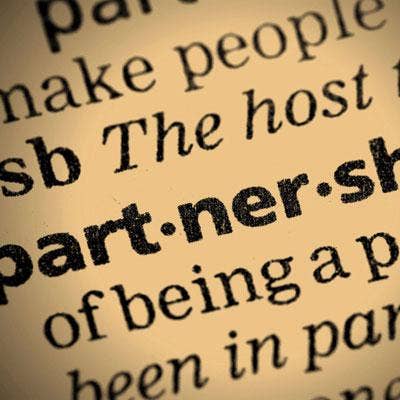
What does F5's program have for partners that only do consulting?
We've started an influencer program. When you have this many cloud migrations happening, you have this new group of partners that are small, custom, could be regional cloud enablement partners. They may never transact. They may not worry about the transaction of a VE. Even if you brought them an opportunity for $300,000 or $400,000, it wouldn't be part of their business model. Influencer programs historically have been very hard. It's very subjective. It's hard to determine its payback. We're trialing in the U.S. an influencer program for cloud enablement partners that are influencing the opportunity and have influenced the migration of the workload, but the transaction isn't going to go through them. It may go through one of our current F5 longstanding partners. We don't want those partners to compete. We want them to work together, and we'll compensate that influencer to complement our current partner.
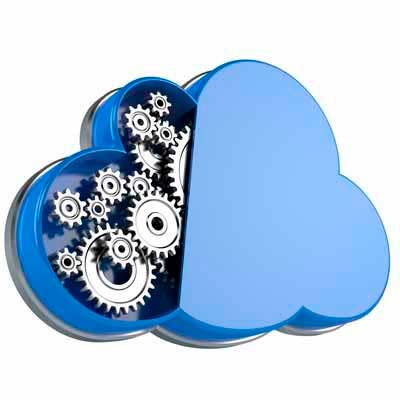
And this is specifically around workload migration?
Yes. When I sit down and talk to partners, they do understand that there is a group of partners that are Super-NetOps, working on multiple different elements within the migration for the end customer and they have never, nor will they, worry about buying a SKU from distribution. It's not in their DNA. Their DNA is consulting with the customer. Some would say well, F5, that's at a cost. It is at a cost, but we consider it an investment. It's an investment in that cloud enablement partner and complementing our current longstanding partner.

Do you need more of those longstanding, transactional partners to be more consultative? Would you be happy to see that?
I would because long term, it just makes a healthier business. It makes a healthier business if they and we together broaden our skill set. It's not a they, it's more of an us. I think collectively we both need to. I'll raise my hand and say I do cloud training myself. We've taken some of our top leaders; we took one of our senior leaders in North America in our partner organization, Lisa Citron, a longstanding F5 partner leader, and she now runs our cloud organization for partners in North America. We built an organization out to drive that with our partner organization. She now has teams in the East, and West and Central and in Atlanta, and those individuals are the specialists that work with customers and partners. They know all the different public cloud environments. They're willing to go with our partners out to customers.
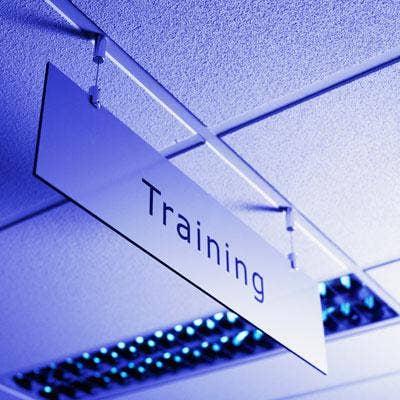
What skill sets do you need partners to acquire?
Have a good understanding of what role Equinix plays in the migration. There's a great story around a multi-cloud environment and Equinix. Having that understanding and how AWS and Azure play into that, to be able to talk to that migration and have a group of individuals that can be dedicated to that is advice I give to partners. I say take some of your top talent and make sure they are evolving as the customer conversation evolves. We're all going down this path because of where our customers are going and what help the customer needs. Having the understanding of the multi-cloud environment and how a great alliance partner we have in Equinix differentiates the discussion with the customer.
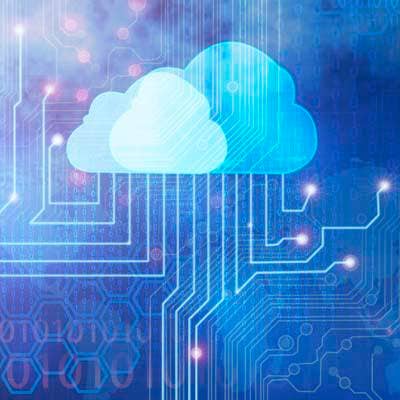
What's your take on the hybrid cloud partnership that Cisco has with Google, or that VMware has with AWS? Does that have any bearing on how you think about the cloud market?
We work with Red Hat, VMware, AWS, Google. What's interesting about being at F5 is that for almost my entire career, you're in a position and you have some stark enemies from day one. At F5, we partner with almost everyone as a tech alliance partner. Most everyone you just listed were sponsors at our sales conference. We have a partnership with Okta, and people say wait a second, but they are a very solid alliance partner for us. When you sit in Layer 4 through 7 and you're securing workloads, there's so many alliance partners that play into it. We've had a longstanding relationship with Cisco and with VMware. The specific plays we have with VMware and IBM are significant. It's a pretty unique partnering environment.
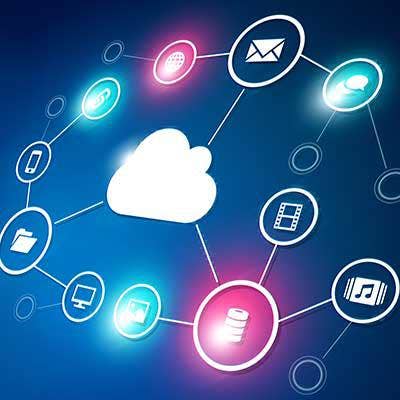
The competitive dynamic between Cisco and VMware must make that interesting.
It's an interesting engagement right now. There's fear out there. People are concerned, organizations are concerned about how they are going to scale up quickly enough to continue to stay relevant and it's a challenge we all have to look at ourselves in the mirror for. Customers want help, and they want help understanding their choices and how they can do it in a cost-effective way. Every one of them has a cloud strategy. It just depends at what pace and which apps they want to move first.

You're seven months into life with a new CEO. How's it going? What's your outlook?
What Francois [Locoh-Donou, pictured] brings to the table is a lot of experience in the service provider market. He is quickly identifying what are our priorities and an operational discipline in the company because there are so many new things that we're coming out with. He's making sure the right parties and the right people and the right structure are in place to make that happen. He is an avid proponent of the partner organization and our channel. When he spoke at our sales conference last week, he wasn't on stage for three minutes before he was talking about the importance of our channel. The level of investment he is putting forth in our partner organization, in our public cloud team, is significant.

Is that a significant increase compared with recent years?
Big increase. We have a vice president of public cloud sales [Chad Whalen] sitting in the partner organization. That entire organization didn't exist a year ago. That organization now has specialists, globally, that are hardline back into this organization. Having Francois on board is driving that level of clarity around what we need to go do. Even if it's as simple as updating him on our AWS strategy, he's going to ask you about it at your next quarterly business review. He's going to want to know what kind of investment we made and what was our return. It's not just Francois. We get a high level of support from our finance teams. We spend a lot of time with our finance teams understanding where our investments are going and what's our return. We've gotten tremendous support to drive the level of incentives back into our partner organization that we have never had before.
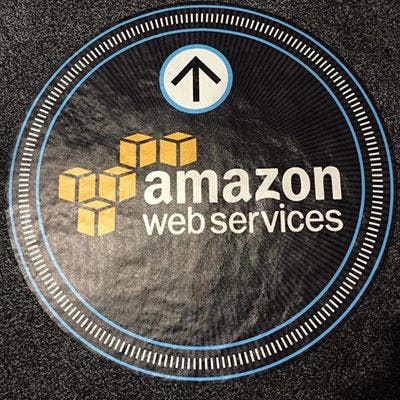
How much traction have you seen in the early days of your AWS partnership?
What's interesting about our AWS partnership and the Channel Opportunity Registration Program is there are AWS partners that will register an opportunity with F5 on moving a secure workload that may not be a partner of F5's. But what that does is provide an opportunity for us to have a born-in-the-cloud, cloud enablement partner recruitment conversation. Then we can sit down with that partner and say, 'We know you're an AWS partner, and we know you're selling VEs. We'd like you to be a cloud enablement partner of F5's and here's some of the value and benefits you'll see by doing that.' We've seen a significant amount of traction with AWS, and I don't see that slowing down at all.